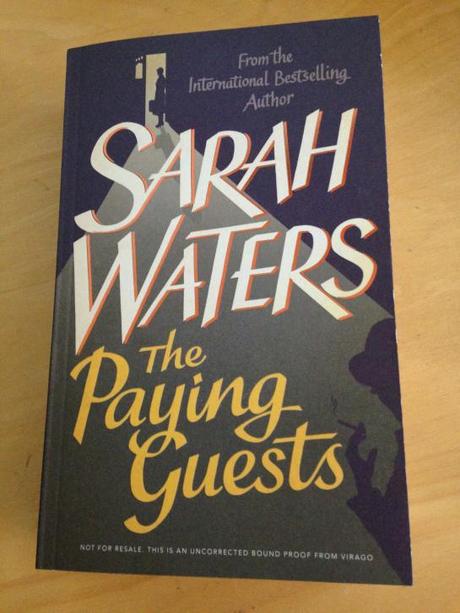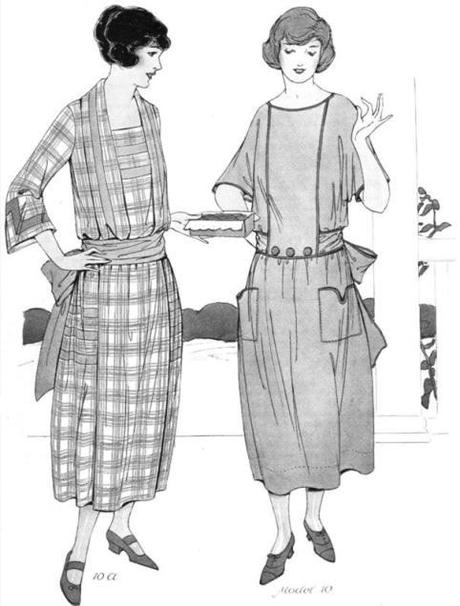Well, well, well… hello again Sarah. We have all missed you.
I don’t remember when I first decided I loved Sarah Waters. We studied Affinity for a course about the modern novel at university, so maybe it was then. I’ve since read all of her novels except one, which I plan to read very soon, and though some were better than others I loved them all. So when I heard a new one was being published I, like most of the book-reading/publishing world, got very excited. What was it about? When was it set? Would it be as good as the others? Would it live up to its own hype? And, perhaps most importantly, will there be lots of lesbian sex?
In a word – yes.

(2014 Virago poof copy)
As I’m sure you know, whether you’ve read it or not, the novel starts with single gal (‘spinster’) Frances and her mother having to take in some lodgers. It is 1922 and they have lost not only Frances’ father and two brothers but also most of their money and their servants. This bitter combination leaves them with no choice but to take in paying guests. The opening scene sees them anxiously waiting for their arrival, looking at the clock and twitching the curtains. It’s a wonderfully constructed scene, and works perfectly as the nervous prologue before this saga of emotion, drama, and intrigue begins. The book is just over 500 pages, but it is the story itself rather than the length that has caused me to call it a ‘saga’. It so dense and rich, and Sarah Waters manages to capture all the tiny nuances and heartbreaks of life.
Frances is our main character and we stay with her throughout the novel, and see things from her point of view; but I am glad that it is not told in the first person. The events of the book (most of which I cannot share as it would just ruin it for you) are quite dramatic and intense, and Frances has an awful lot of feelings throughout the story. She goes through a huge range of emotions and experiences, but at the same time her world is quite small and she lives quite a claustrophobic life, much of which revolves around the house and her mother. I think if the story had been told in the first person it could easily have become a bit melodramatic and over the top, as well as exhausting for the reader – and I’m sure the writer too. So, it works perfectly that we have a healthy step or two between us and Frances. We observe her closely, and hear snippets of her thoughts and feelings, rather than having to endure and experience everything with her – something for which I was grateful.
For Frances does not have the easiest time of it. Not only is she lonely and stuck with endless housework and a fretting mother, she has to adjust to these new people living in her house, just across the hall. Though they are charming and friendly, and Frances and her mother have chosen to take them in, there is still a sense of intrusion and the destruction of the safe, familiar, family home. The house itself could almost be seen as a character in the novel, in a way. It symbolises both the things that Frances and her mother have lost, and the new life that they have no choice but to lead. It also becomes the scene for events that will change Frances’ life, and will take on new meaning, and engender new feelings from its inhabitants.
After we see Frances and her mother twitching and feeling anxious, dreading what might come, we are introduced to Mr and Mrs Barber. Frances and her mother are both horrified and charmed by them as they enter the house with smiles and handshakes, and apologies for being late. Straight away the issue of class presents itself: Frances and her mother are middle class, whereas Mr and Mrs Barber are of the ‘clerk class’, people who come from families with little money and status, but who work to better themselves. To Frances’ mother, and perhaps Frances herself, it is another symbol of how much their former life has faded, and how, in the harshest terms, they have been brought ‘lower’. They are no longer a family, but landladies.
Aside from thoroughly enjoying the plot (it is killing me that I can’t talk about it here) one of the best, best things about this novel is the characters, and Waters’ ability to ‘characterise’ them in such a way that they are not only vivid and real, but that we feel we get to know them as we spend more time with them. She is one of the few novelists whose characters have stayed with me, and continued to exist in their own universe. There is more to these characters’ lives than what we see in the novel, and when it has finished there is a strong sense that their lives will continue beyond the pages, that they will continue on their story – and what a joy it is to imagine what the rest of that story might hold. For me Frances is still there, living her life and dealing with the consequences of the events of this wonderful book.

I imagine Frances would have worn something like this, from a 1922 edition of Fashion Service magazine (image: dressmakingresearch.com)
Now. What about the lesbians? This is Sarah Waters. There have to be some lesbians, and they have to do it. And fear not, they do, quite a lot, and it’s pretty fantastic. There is a lot of talk of hips and breasts touching, and some really beautiful descriptions of types of kisses, and the mood and emotions of the – how shall I put it – encounters. ‘Encounters’ feels correct because here the sex is all illicit, secret, often hurried and urgent, which only serves to make it more erotic. Given the circumstances in which it occurs, and the circumstances of the women (yes, one of them is Frances) it becomes only more beautiful. It is loving and affectionate as well as horny and fumbly, and is often accompanied by a communication of deep feelings. At one point it is described as being like drinking water after having been deprived of it. The sex is in no way gratuitous and is not described in detail every time – sometimes it is, but sometimes it is described simply as ‘going to bed’ or something similar, which makes it seem awfully romantic and very sweet.
Surely the triumph of this novel is the analysis, exploration, and deep understanding of the very complex relationships within it. They are mostly Frances’ relationships, with her mother, Mrs Barber (who soon becomes ‘Lillian’) and Mr Barber (who soon becomes ‘Len’). She relates to them all in different but equally multi-faceted ways, and nothing that is said or done is ever (or at least is very rarely) completely honest and transparent. Much like Donna Tartt, Sarah Waters seem to perfectly perceive the delicacies and intricacies of our relationships and interactions; not only that but she is able to to transcribe them in such a way that they seem to be happening right in front of you. Actually, ‘transcribe’ is the wrong word, it is too literal. She moulds these scenes and these relationships out of words and captures them on the page, whereby they are relayed to us, the reader. This story is intensely personal as we see the most private of moments between the characters (I do not mean just the sex scenes – private in every sense) and yet the story and its characters are universal. They are normal, unremarkable people who are made remarkable by their actions and the ways in which they live their lives. We come to love them as we do the people we know in real life. I still think of Sue and Maud from Fingersmith and Margaret from Affinity; I’m sure I will continue to think about Frances and Lillian.
The Paying Guests is classic Waters (drama, intrigue, period setting, lesbians, sex, single women, feminism) but it is also entirely new and modern. Though it has similar elements it doesn’t feel like anything she has written before, which is wonderful. I wish, wish, wish I could talk more about details of the plot, but has I had no idea of them when I started reading I think it would ruin the reading experience for anyone else. Though if you’ve read it I am dying to talk about it! Get me on Twitter.
So there you have it. Another amazing, beautiful novel from Sarah Waters. If you loved her other novels you will love this one too, but you will also love it even if you haven’t read the others. There’s a bit of something for everyone, I think, as the novel as so many different elements and facets, so many different types of story within it. I loved it.
–
Published by Virago (UK) on 28th August 2014. My copy was kindly provided by the publisher for review.
